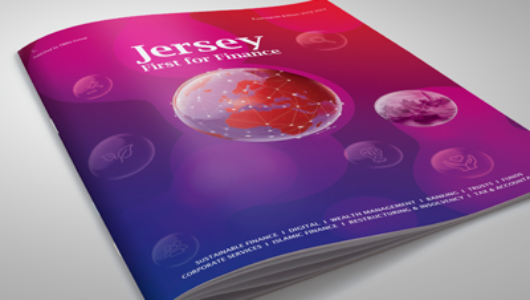Jersey’s commitment to the global fight against financial crime is not new. The Island has been involved with developing the FATF standards and committed to implementing them since the creation of the body. This was initially through the efforts of the late Colin Powell CBE, economic adviser to Jersey for five decades and in more recent years myself and representatives from across Island agencies. We have worked with the FATF developing standards around beneficial ownership transparency, risk-based guidance for supervision and have also been part of international assessment teams of other countries.
Jersey’s last assessment, in 2015, provided the Island with a clean bill of health, with some areas cited for improvement. Since then, much has changed in the international world of financial crime. The awareness of the need to be vigilant about the funding of terrorism has increased, as well as our appreciation of how sanctions can very quickly bring international events close to home. There have also been significant developments around corporate transparency, sanctioning of large banks and other institutions and the way in which international financial centres play their part in the global economy and how they are exposed to illicit finance threats.
Jersey’s true position as an international financial centre was demonstrated in the first National Risk Assessment of the jurisdiction for money laundering, published in 2020, noting the size and variety of the industry – notably serving over a million customers worldwide (in over 200 jurisdictions) and managing in excess of a trillion GBP of wealth. The Island must therefore be vigilant against significant threats.
Given the last assessment, can Jersey simply be certain of a positive report? In short, the answer is no. However, the Government and Jersey authorities have already taken decisive action to mitigate against this possibility. Whilst the Island has kept up with international standards and implemented new laws which aim to increase the ability of competent local authorities to investigate financial crime, next year the Island will be assessed on a very different basis.
In the first line of this piece was the word ‘effectiveness’, which marks a significant change in the way countries are assessed. This looks in practice at the actual results jurisdictions are achieving in fighting financial crime, against the threats they face – which for IFCs tend to be deemed significant. Andrew Strijker, who was an assessor on Jersey’s last assessment and is currently the Chair of the EUROPOL EFIPPP Threats and Typology working group, suggested that last time the assessment was weighted to 80% compliance and 20% effectiveness. This time, he said, those proportions would be reversed.
This approach has led to several international financial centres such as Cayman, Malta and most recently Gibraltar, being placed on the FATF ‘grey list’. This is not an official term but described by the FATF as ‘Jurisdictions under increased monitoring who are actively working with the FATF to address strategic deficiencies in their regimes’. This has a significant
impact on that jurisdiction’s economy resulting in the severing of business relationships with the listed jurisdiction and significant further impact on their wider economy.
Since 2015, Jersey has taken significant steps to both respond to the advice given at that time and to keep up to date with the risks and threats the Island faces. We now have a significant risk programme and National Risk Assessments have been carried out in several areas with progressively increasing scope as new threats emerge. These are conducted hand in hand between authorities and industry to ensure understanding of threats faced is shared and widely understood. Legislation has been implemented and amended and it is fair to say that the number of new laws being drafted and approved has increased exponentially over recent years. The Financial Intelligence Unit (FIU) has been restructured, along with an increased and significant staffing model change. New suspicious activity reporting forms (providing better data) and a new public private partnership, the Jersey Financial Intelligence Network (JFIN), aims to significantly enhance the development and use of financial intelligence in the Island.
In a recent industry event David Parody, the national coordinator for Gibraltar’s anti-money laundering and countering funding of terrorism, reflected on the fact that Gibraltar was placed on the grey list after a two-year programme of improvements. On the positive side he said that from what he could see, Jersey was better prepared than they had been at the same stage of their assessment but he cautioned: “You enter this process, possibly naively, thinking that you are already there and that you’ve got everything that you need and you complete your evaluation questionnaires truthfully, honestly and thinking, well, wow, what a great job we’ve done. And it’s not until the end of the process when you see it in black upon white how other people perceive you.”
Accordingly, this is the work that is ongoing, to not only show that we have the right laws, the right regulatory regime and the right agencies in place but also that they can demonstrate they are effective using hard data. These efforts have been brought together by the Government and agencies under the banner of ‘Combatting Financial Crime Together’. In practice, this signifies the next step along the road of Jersey’s longterm commitment to that cumulative global fight. Ultimately, this is both to prepare the Island for the upcoming MONEYVAL evaluation but more significantly to protect its long-term future as a responsible international financial centre.

